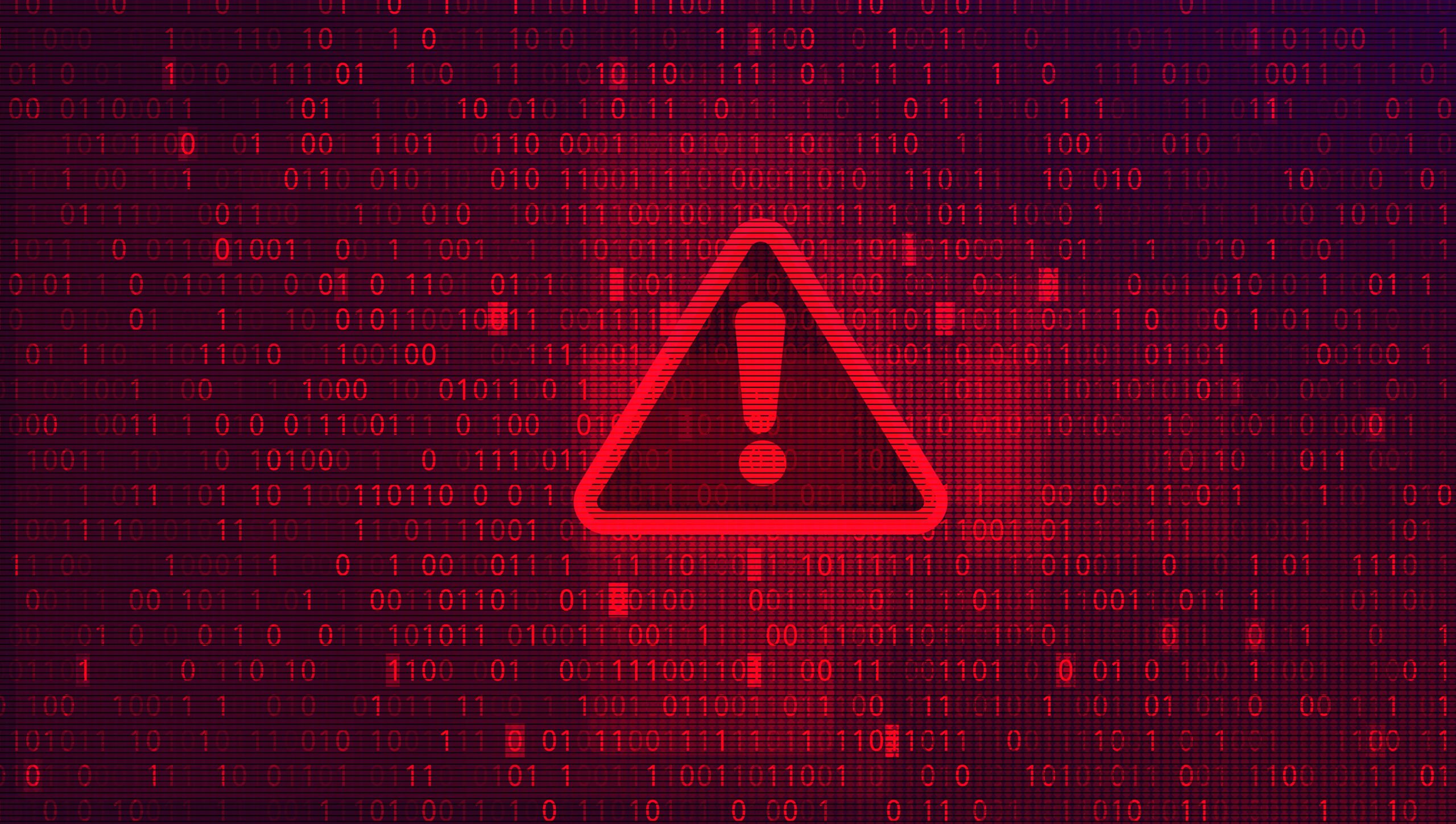In our recent webinar, Cybersecurity in Healthcare, BESLER’s Information Security Officer, Jason Nadal, and Director of Information Technology, Eric Englebretson, dove into the critical need for healthcare cybersecurity. They offered insights into managing risks and protecting sensitive patient data, shedding light on the intersections between healthcare and cybersecurity.
We also invite you to listen to our engaging podcast episode featuring Wade Wright, Chief Technology Officer, who explores the practical aspects of implementing cybersecurity measures in a healthcare environment. This episode’s insights will equip you with the knowledge to understand and enhance your institution’s cybersecurity efforts.
Types of Cyber Threats

To fully grasp the severity of the risks we face in today’s high-tech healthcare environment, it’s essential to understand the various types of cyber threats.
- Ransomware encrypts data, holding it hostage. Healthcare organizations needing immediate patient data access can be vulnerable.
- Phishing attacks are deceitful attempts to obtain sensitive information. In healthcare, they compromise patient data and financial information.
- Data breaches involve unauthorized access to protected health information, threatening patient privacy, and causing financial and reputational harm.
The Impact of AI on Threats
The emergence of artificial intelligence (AI) has significantly altered the landscape of cybersecurity threats in healthcare. A subset of AI, machine learning, refers to systems capable of learning and improving from experience. While enhancing security measures, machine learning also reveals the potential for sophisticated cyberattacks, including developing more convincing phishing schemes.
AI also offers solutions for better security tooling. It can help detect patterns in data breaches or phishing attempts and automatically implement protective measures. Still, it is imperative to strengthen cybersecurity measures in healthcare due to the sensitive nature of data and the increasing sophistication of threats.
Cyber-Attacks in Healthcare
Numerous cyber-attacks can significantly expose your patient data. Having strategies in place is crucial to preventing threats and thereby reducing their impact.
Electronic Shutdowns
Healthcare organizations, post-electronic shutdowns, must ensure continuity of patient care. Offline systems make critical data inaccessible, leading to potential treatment delays and life-threatening situations. Enhance cybersecurity protocols and establish contingency plans to mitigate these risks.
Password Sharing
Sharing passwords among healthcare employees poses a significant cybersecurity threat and compromises patient data security. Enforce continuous employee education and strict password policies to prevent security breaches.
Increasing Cyber Insurance Premiums
Increasing cyber insurance premiums reflect the growing threat of cyber-attacks in healthcare. Insurance companies raise premiums due to increased risk, highlighting the urgent need for robust cybersecurity measures in healthcare organizations.
The Cost of Ransomware Attacks
Ransomware attacks remain a threat to healthcare and other institutions worldwide.
- In 2022, a healthcare system suffered a $160 million ransomware attack.
- In 2023, a large city in Dallas faced an $8.5 million attack.
These instances emphasize the urgent need for proactive implementation and updating of cybersecurity measures in healthcare.
The Challenges with Healthcare and Cybersecurity

Healthcare providers face numerous challenges in implementing current cybersecurity systems and protocols.
Older Systems
A major hindrance is the prevalence of older systems within the healthcare infrastructure. Outdated systems often lack the necessary features to prevent today’s sophisticated cyber threats. Upgrading these systems is not just a technological challenge, but also a financial one, often requiring significant investment.
Data Exfiltration Leaks
Another challenge is monitoring data exfiltration leaks, which refers to unauthorized data transfer from a computer. This can often occur unsuspectedly through shared “chargers” in public places like airports. Cybercriminals can exploit these seemingly innocent devices to extract sensitive data, posing a monumental threat to healthcare cybersecurity and people’s personal security.
Personal Devices
The growing use of personal devices for work poses a unique difficulty, expanding the attack surface for cyber threats. Though convenient, these devices often lack intuitive security, making them vulnerable. Healthcare organizations must enforce stringent security protocols for personal devices to ensure data integrity and confidentiality.
The Impact of Regulatory Framework on Cybersecurity
Securing health data extends beyond HIPAA. Data encryption is crucial to ensure secure data sharing, whether at rest or in transit.
The human element poses a greater challenge, where deceiving individuals is often easier than duping systems. Countless ways exist to manipulate a phone call based on an individual’s mood.
Handling protected health information (PHI) daily may lead to overlooking costly errors. Sending unencrypted PHI in an email can result in penalties and a loss of trust. In addition to HIPAA, the healthcare industry must view itself as a custodian of confidential data and continuously strive to protect it.
Developing a culture encouraging questioning of suspicious behaviors can mitigate risks. At BESLER, we stress the importance of a second pair of eyes, ensuring scrutiny for regulation compliance.
Consider the steps your organization would take in a cyber-attack leading to a reliance on paper records. Post-attack audits may require access to these records, emphasizing the need for a contingency plan.
How Staff Can Play a Part

Cybersecurity threats have a massive impact on healthcare, compromising patient data integrity and critical services. Staff at all levels must grasp these implications, necessitating frequent training sessions.
BESLER advocates for comprehensive, bite-sized training sessions covering relevant topics. Practical training includes security newsletters and “what if” scenarios to enhance preparedness and practical understanding.
Reinforcing ideas is crucial, considering the unique cybersecurity challenges in healthcare. Evaluate your current vendors and monitor resources, ensuring adherence to high-security standards for risk management.
The Future of Healthcare and Cybersecurity
Shifting Power Dynamics
Recognizing shifting power dynamics is crucial for the future of healthcare and cybersecurity. As technology advances, healthcare organizations hold more data, requiring a proportional increase in protective measures. This shift emphasizes the need for cybersecurity.
Regulatory Changes
Regulatory changes will also depart from punitive measures, instead focusing on proactive steps to protect vital data. These changes encourage a culture of responsibility and compliance in healthcare entities.
Mitigation Tools
The complexity and frequency of cyber threats can cause fatigue among healthcare staff. Combating exhaustion is vital for maintaining high security standards. Anticipating more targeted attacks, the industry should leverage tools to mitigate risks and foster staff resilience.
Understanding the Benefits
In the future, the focus will shift to understanding and leveraging the benefits of cybersecurity. This perspective change catalyzes more robust measures and a proactive approach to risk management.
Protect Your Data, Starting Now

In today’s digital landscape, protecting your healthcare data is more critical than ever. Cybersecurity is not just about installing antivirus software or setting complex passwords – it requires a comprehensive framework with proactive strategies.
BESLER’s IT leaders Jason Nadal, Eric Englebretson, and Wade Wright offer practical advice and insights to guide you through this complex terrain.
Take action before a cyber threat strikes. Begin your journey toward cybersecurity today to gain valuable insights for your organization’s initiatives and effectively protect patient data.




